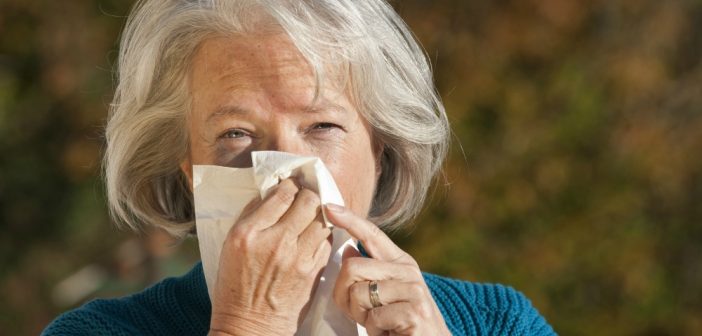Spring in Utah is an exciting time, with warmer temperatures and plants coming alive everywhere you look. Unfortunately, for many people the excitement soon turns to misery as they begin sneezing, rubbing their itchy eyes and wiping their runny noses all day. If this sounds like you, you’re not alone. Nearly 30 percent of adults and 40 percent of children have seasonal allergies.
In some cases, people mistake a head cold for seasonal allergies. “Although the symptoms for both conditions are uncomfortable, we caution our staff and patients to be sure they know what they are dealing with before starting treatment,” said Rob Mitchell, Director of Nursing, at Pointe Meadows Health and Rehabilitation in Lehi. “Some big indicators for a head cold are body aches and a fever. Whereas allergies contribute to itchy eyes and the symptoms linger for weeks.”
For allergy sufferers, the change in seasons is hard to enjoy. In Utah, the relief from allergies is particularly short, as different allergens are present from the beginning of new blooms in February to the first frost in November.
From prevention to treatment, here are six tips for dealing with seasonal allergies.
Take your medicine
If you have allergy medication, make sure to take it correctly and before your symptoms begin. Preventing symptoms is easier than treating them when they arrive. Let the medication do its work by starting a routine before your sneezing takes over.
Stay indoors
Allergies do not need to keep you inside the house all day, but it pays to know when pollen is at its highest. Watch the pollen counts and stay indoors when levels are likely to be at their worst. Schedule outdoor activities for the afternoon when pollen is lower than in the morning. Avoid the outdoors during particularly windy days, but enjoy overcast, drizzly days that are easy on your airways. Knowing how to avoid allergens when they are at their highest will help you to enjoy the outdoors when you have the chance.
Close the windows
It’s tempting to open the windows and let the spring breeze flow into your house, but your eyes and nose will not appreciate your efforts. Keep the windows closed and turn on the air conditioning to cool the house. The air conditioning will help filter pollen out of the air and make your breathing easier. The same goes for your time in the car. Roll those windows up and stick to air conditioning.
Cover up
Putting up a barrier will go a long way when you want to shield your body from pollen. Wear a bandana over your face and sunglasses to protect your eyes, especially when doing yard work like mowing the lawn. Put on a hat to keep the pollen from sticking in your hair. If covering up isn’t enough, ask someone else to do the yard work instead.
Take a shower
It may seem extreme to rinse off after being outdoors, but for severe allergy sufferers it can make a world of difference. After spending time outside, change clothes and take a shower to get the pollen off your skin and out of your hair. You won’t be able to keep all the pollen outdoors, but it will help to get it off your body.
Visit the doctor
When over-the-counter medications aren’t doing the trick, visit the doctor to try and get your allergies under control. Some prescription medications are available that can help alleviate symptoms. If these medications are still not enough, tests can be done to determine what allergens are causing symptoms and a doctor can give you a shot to help your body tolerate the specific allergens.
Seasonal allergies can be the difference between seeing the world through rose-colored glasses and seeing it through hazy, sneeze-covered glasses. It is difficult to enjoy the outdoors when pollen makes you miserable. Whether you have minor or severe symptoms, seasonal allergies should not be ignored and can be treated. With some preventative steps and a trip to the doctor, allergies can stop running your life from spring to fall.
This article was originally published by The Daily Herald




